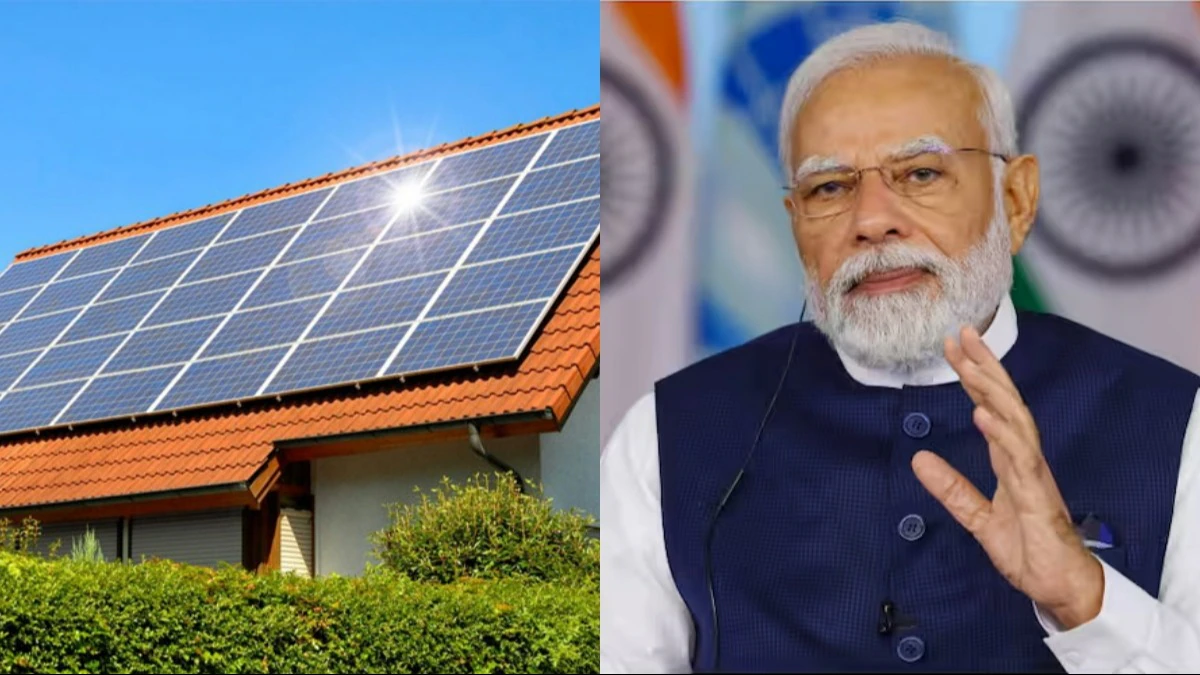ROOFTOP SOLAR: A Comprehensive Guide to Harnessing Solar Power from Your Rooftop

Harnessing the power of the sun through rooftop solar systems has become increasingly popular as more individuals and businesses seek sustainable energy solutions. But how exactly do these systems work, and what options are available to consumers? Let’s delve into everything you need to know about rooftop solar systems.
How Rooftop Solar Works:
When sunlight hits solar modules installed on the rooftops of homes, commercial buildings, or industries, individual cells within the modules convert the sunlight into DC electricity. However, since most appliances operate on AC electricity, the modules are connected to an inverter to facilitate this conversion. Once converted, the output of the inverter, which is AC electricity, is then connected to the mains of your home, enabling you to utilize solar energy.
It’s important to note that you can use electricity from your rooftop solar power plant alongside electricity sourced from your local utility provider. This arrangement is common and easily managed by solar installers. However, hybrid or off-grid systems with battery backup are recommended for those interested in utilizing solar energy during nighttime or periods of low sunlight.
Types of Solar Systems:
- On-Grid Systems: These systems are directly connected to the building mains. They prioritize solar power generation, utilizing grid power only when necessary. Grid-connected systems often qualify for net metering, where excess power generated is fed back into the grid, providing credits or even payments from the utility provider.
- Off-Grid Solar Systems: These systems operate independently from the state grid and include battery backup. Excess solar energy charges the batteries, allowing for energy storage. While off-grid systems enable energy usage even during periods of low solar generation, they tend to be more costly and have lower efficiency due to battery maintenance requirements.
- Hybrid Systems: Combining elements of both on-grid and off-grid systems, hybrid systems feature battery backup for energy storage. Excess power generated beyond battery capacity is fed back into the grid, providing compensation. Hybrid systems may also incorporate other energy sources such as diesel generators or wind turbines.
- Sustainability and Environmental Impact:
- With growing concerns about climate change and carbon emissions, rooftop solar offers a sustainable alternative to traditional energy sources. Discussions revolve around its role in reducing greenhouse gas emissions, mitigating climate change, and preserving the environment for future generations.
- Economic Viability and Cost-effectiveness:
- Rooftop solar installations have become increasingly cost-effective, leading to debates about their economic viability compared to conventional energy sources. Discussions focus on the decreasing costs of solar panels, government incentives, and return on investment for homeowners and businesses.
- Technological Advancements and Innovations:
- Rapid advancements in solar technology, such as improved efficiency and energy storage solutions, are reshaping the rooftop solar industry. Trending topics include discussions on breakthrough technologies, innovative installation methods, and smart grid integration.
- Policy and Regulatory Framework:
- Government policies and regulations play a crucial role in fostering the growth of rooftop solar. Discussions revolve around topics such as net metering policies, feed-in tariffs, tax incentives, and regulatory barriers hindering widespread adoption.
- Energy Independence and Resilience:
- Rooftop solar empowers individuals and communities to take control of their energy production, reducing reliance on centralized power grids. Trending discussions focus on the role of rooftop solar in enhancing energy independence, resilience against power outages, and decentralizing energy systems.
- Social Equity and Accessibility:
- Ensuring equitable access to rooftop solar remains a critical topic of discussion. Debates center around strategies to make solar energy accessible to low-income communities, marginalized groups, and developing regions, addressing barriers such as upfront costs and financing options.
Can You Install Rooftop Solar?
The answer is yes, as long as you have a rooftop, you can install a rooftop solar system. Even residents of high-rise buildings can explore rooftop solar options by consulting with their Resident Welfare Associations (RWAs) for shared rooftop provisions. However, before installing rooftop solar, consider factors such as rooftop suitability, shading, and local regulations.
Rooftop solar systems offer an eco-friendly and cost-effective solution for energy needs, empowering individuals and businesses to contribute to a greener future while enjoying energy independence. For further information or assistance with rooftop solar installations, consult with reputable solar energy providers or visit government resources dedicated to renewable energy initiatives.
In conclusion, rooftop solar systems offer a promising avenue for sustainable energy adoption, providing numerous benefits to consumers and the environment alike. Whether you’re looking to reduce energy costs, minimize your carbon footprint, or simply embrace renewable energy, rooftop solar systems offer a viable solution for a brighter, more sustainable future.






